Filter by
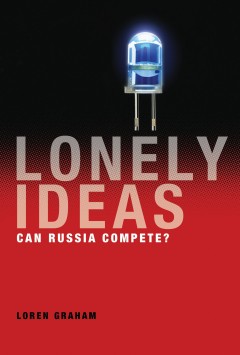
Lonely Ideas: Can Russia Compete?
When have you gone into an electronics store, picked up a desirable gadget, and found that it was labeled "Made in Russia"? Probably never. Russia, despite its epic intellectual achievements in music, literature, art, and pure science, is a negligible presence in world technology. Despite its current leaders' ambitions to create a knowledge economy, Russia is economically dependent on gas and o…
- Edition
- -
- ISBN/ISSN
- 9781461942979
- Collation
- 1 online resource (xi, 204 pages)
- Series Title
- -
- Call Number
- -

Failed Promises: Evaluating the Federal Government's Response to Environmenta…
A systematic evaluation of the implementation of the federal government's environmental justice policies.OCLC-licensed vendor bibliographic record.
- Edition
- -
- ISBN/ISSN
- 9780262327138
- Collation
- 1 online resource (xviii, 269 pages).
- Series Title
- -
- Call Number
- -
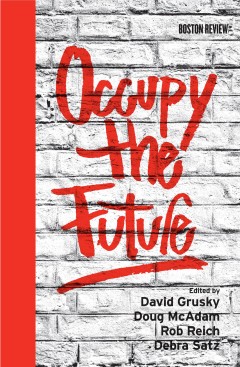
Occupy the Future
"How the Occupy movement has challenged the gap between American principles and American practice--and how we can realize our most cherished ideals."--Provided by publisher.OCLC-licensed vendor bibliographic record.
- Edition
- -
- ISBN/ISSN
- 9780262306072
- Collation
- 1 online resource (280 pages) :illustrations.
- Series Title
- -
- Call Number
- -
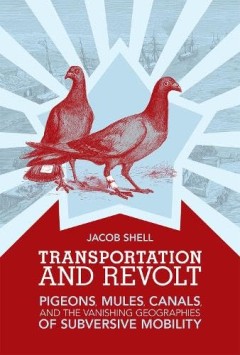
Transportation and revolt :pigeons, mules, canals, and the vanishing geograph…
"Modes of transportation understood, by political regimes in different times and places, as intrinsically useful for clandestine movement, subversive mobility, and smuggling for revolt. Contents: Chapters look at canal transportation, several types of animal transportation (mules, elephants, camels and sled-dogs are all treated at some length), and inner-city freight-carrying infrastructure"--P…
- Edition
- -
- ISBN/ISSN
- 9780262330404
- Collation
- 1 online resource :illustrations.
- Series Title
- -
- Call Number
- -

Dynamics among Nations: The Evolution of Legitimacy and Development in Modern…
"Liberal internationalism has been the West's foreign policy agenda since the Cold War, and the West has long occupied the top rung of a hierarchical system. In this book, Hilton Root argues that international relations, like other complex ecosystems, exists in a constantly shifting landscape, in which hierarchical structures are giving way to systems of networked interdependence, changing ever…
- Edition
- -
- ISBN/ISSN
- 9781461950349
- Collation
- 1 online resource (xiii, 332 pages)
- Series Title
- -
- Call Number
- -

Take Back the Center: Progressive Taxation for a New Progressive Agenda
"Reality-based arguments against right-wing fantasies: the case for reducing income inequality, rebuilding our infrastructure, investing in education, and putting people back to work."--Provided by publisher.OCLC-licensed vendor bibliographic record.
- Edition
- -
- ISBN/ISSN
- 9780262305945
- Collation
- 1 online resource (298 pages)
- Series Title
- -
- Call Number
- -
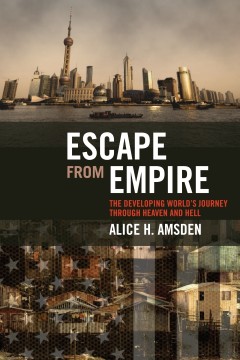
Escape from Empire: The Developing World's Journey through Heaven and Hell
In Escape from Empire, Alice Amsden argues that the more freedom a developing country has to determine its own policies, the faster its economy will grow. America's recent inflexibility - as it has single-mindedly imposed the same rules, laws, and institutions on all developing economies under its influence - has been the backdrop to the rise of two new giants, China and India, who have built e…
- Edition
- -
- ISBN/ISSN
- 9780262267113
- Collation
- 1 online resource (vi, 197 pages) :illustrations
- Series Title
- -
- Call Number
- -
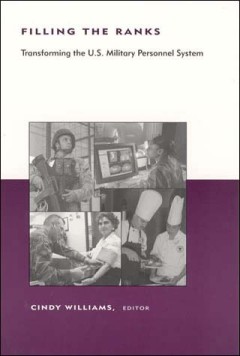
Filling the Ranks: Transforming the US Military System
Title from title screen.OCLC-licensed vendor bibliographic record.
- Edition
- -
- ISBN/ISSN
- 9780262286251
- Collation
- 1 online resource
- Series Title
- -
- Call Number
- -
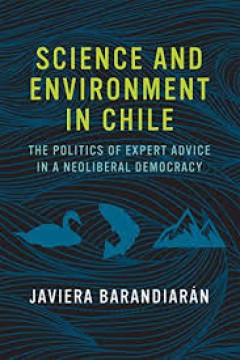
Science and environment in Chile :the politics of expert advice in a neoliber…
The politics of scientific advice across four environmental conflicts in Chile, when the state acted as a "neutral broker" rather than protecting the common good. In Science and Environment in Chile , Javiera Barandiar?n examines the consequences for environmental governance when the state lacks the capacity to produce an authoritative body of knowledge. Focusing on the experience of Chile afte…
- Edition
- -
- ISBN/ISSN
- 9780262347419
- Collation
- 1 online resource (284 pages).
- Series Title
- -
- Call Number
- -

Evolving households :the imprint of technology on life
The transformative effect of technological change on households and culture, seen from a macroeconomic perspective through simple economic models.In Evolving Households, Jeremy Greenwood argues that technological progress has had as significant an effect on households as it had on industry. Taking a macroeconomic perspective, Greenwood develops simple economic models to study such phenomena as …
- Edition
- -
- ISBN/ISSN
- 9780262350853
- Collation
- 1 online resource (xiv, 315 pages)
- Series Title
- -
- Call Number
- -
 Computer Science, Information & General Works
Computer Science, Information & General Works  Philosophy & Psychology
Philosophy & Psychology  Religion
Religion  Social Sciences
Social Sciences  Language
Language  Pure Science
Pure Science  Applied Sciences
Applied Sciences  Art & Recreation
Art & Recreation  Literature
Literature  History & Geography
History & Geography